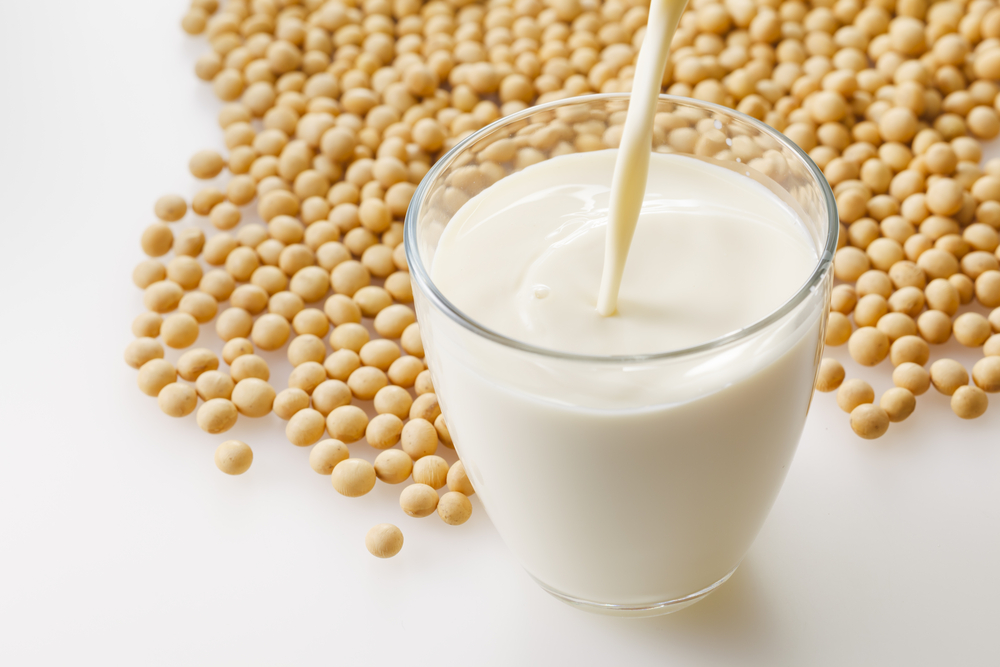Plant-based diet trends haven’t reached an avocados-on-all-the-things level quite yet, but we’re getting there.
It’s now extended to people experimenting with dairy-free alternatives for cow’s milk. While plant-based milks are hyped as healthier alternatives to cow’s milk, there’s little research available comparing the benefits and downsides of each – until now.
A new study from Canada’s McGill University did just that, examining four of the most common types of plant-based milk substitutes – almond milk, soy milk, rice milk, and coconut milk – and compared them with traditional cow’s milk.
They found that cow’s milk is actually still the most nutritious, soy milk ended up being the ‘clear winner’ over the other three alternatives.
These are some of pros and cons published in a summary of the study:
Cow’s Milk
The O.G. milk; wholesome and complete, offering all major nutrients your body needs, including fat, carbs, and proteins.

Cow’s milk also provides anti-microbial effects; a past study showed that infants who consumed cow’s milk had a significantly reduced risk of fever and respiratory infections.
Having said that, milk allergy is ironically one of the more common food allergies among said infants and children, affecting 2.2-3.5% of children – that’s higher than peanut and tree nut allergies. Luckily, 35% of infants outgrow their milk allergy by age 5-6, increasing to 80% by age 16.
Obviously, cow’s milk isn’t recommended to people who are lactose intolerant, which affects between 15-75% of all adults, dependent on race, gut health, and food habits.
Rice Milk
Rice milk is a friendly alternative for the lactose-intolerant, as well people who are allergic to soybeans or almonds. Plus, it’s sweet profile makes it all the more palatable.
Besides being a flexible form of milk, the nutritional value leaves much to be desired, and there’s apprehension over its very high carb count.
Consuming rice milk without proper care can also result in malnutrition, particularly in infants.
Related: 7% of American Adults Think Chocolate Milk Comes From…Brown Cows
Coconut Milk
The tropical milk helps reduce levels of unwanted low-density lipoproteins – better known as low-density lipoproteins – which are linked to various cardiovascular diseases.
Coconut milk also has a very low calorie count – though what is there is mostly fat. It’s also absent of protein, with nutritional values bottoming out if the milk has been stored for more than two months.
Soy Milk
Of the four milks involved in the study, soy milk had the most balanced nutritional profile.

Used as a substitute for cow’s milk for four decades now, it’s widely consumed for the beneficial phytonutrients present in the milk. Also known as isoflavones, the phytonutrients offer the body anti-carcinogenic properties; this can delay, or prevent, cancers.
The downside? If you can believe it, people still prioritize taste when they eat, and the ‘beany flavour’ of the milk is a negative. There’s also some concern of the presence of anti-nutrients, which are substances that limit nutrient intake and digestion.
Almond Milk
Almonds offer plenty of monounsaturated fatty acids (MUFA), which are beneficial to a body’s weight loss and weight management. MUFA also reduces the count of low-density lipoprotein, or bad cholesterol.
It doesn’t offer much else in terms of essential nutrients, meaning almond milk believers need other food sources to get their fix.
The full findings can be found published online in the Journal of Food Science and Technology.
Photo Credit: Nishihama/Shutterstock.com; S_Photo/Shutterstock.com; kondratya/Shutterstock.com












